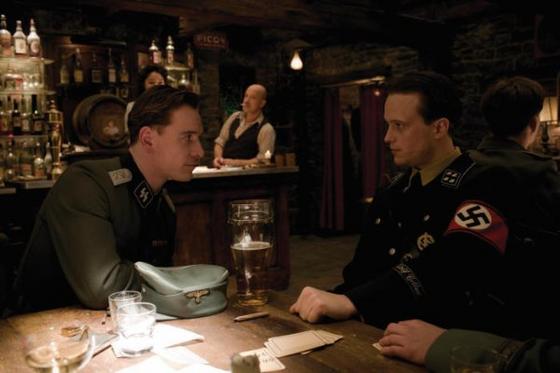January 14, 2021
Christopher Nolan’s Tenet is a mess
There are no spoilers in what follows because I couldn’t spoil Tenet if I tried.
I am a huge fan of Christopher Nolan. Several of his movies rank among my favorites, including Memento, Inception, and Interstellar. But I like and admire all of his movies for their ideas, technical virtuosity, music, and sometimes unnecessary cleverness.
But I’ve just watched Tenet for the second time and it’s a bad movie. Oh, sure, it’s got some good points, but it doesn’t make sense to anyone except Nolan, and it is not fun to watch. It’s as if he decided to really outdo himself this time, so he goes over the top via a path that leads up his own ass.
Remember The Prestige? It’s structured like a magic trick (sorry, illusion) with the “prestige” — the big payoff — at the end. Tenet has a couple of moments at the end that made me say “Oh, cool!” to myself. But that was followed by a “Wait. What?” I don’t see how they make any stinking sense.
I am sure they do to Nolan. Buthis is a prestige that only works for the magician. Which means it’s not a good trick. (Sorry, illusion.) In fact, there’s exposition at the end to explain the movie’s prestige, which is like a magician saying , “So, here’s why you should have been amazed at what I just did. “
Despite the staggering amount of exposition in the movie — so very much exposition — the initial premise introduced after the opening set piece has consequences that I cannot make sense of. The movie seems at times to operate under arbitrary but convenient rules.
What’s worse, the movie fails — In my opinion, d’uh — as a movie. While John David Washington is good in the lead role, there really isn’t much at stake for him. I mean, the entire world is under threat, but we’re given little reason to care about him personally. The only person we actually care about is one of the very few women in the movie, a damsel in distress. (Really.) She’s paired with a Russian oligarch (really) that Kenneth Branagh struggles to give even one dimension; it could not be more cartoony. I did develop an affection for Robert Pattinson’s role, even though his character is also terribly underdeveloped; he’s there to get things done so the movie can move ahead even though they’d be impossible in real life. Because of my No Spoilers policy, here’s a made-up example: If Washington’s character — called only “The Protagonist” for reasons that make me think I’m missing the entire point — needed an armed tank to show up in Times Square, Pattinson would say “Want any decals on that?”
Nolan had a cool idea for a movie with a science fiction premise: “Suppose X”. X is promising. But then he had to make up a plot in which to deploy his idea. The plot is cliched and results in completely arbitrary set pieces that could have been replaced with an infinite number of set pieces from other movies without having any effect on anything else in the movie. The bad guy could be smuggling a McGuffin through Mardi Gras, a climbing expedition in the Alps, or a White House briefing. And that plot and those set pieces are the bulk of the movie.
There are scenes and moments to like about Tenet because it is, after all, a Christopher Nolan movie. But I am not tempted to see it a third time, and am a little pissed off that I thought a second watching would help.










